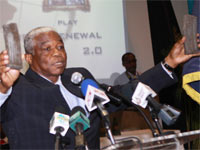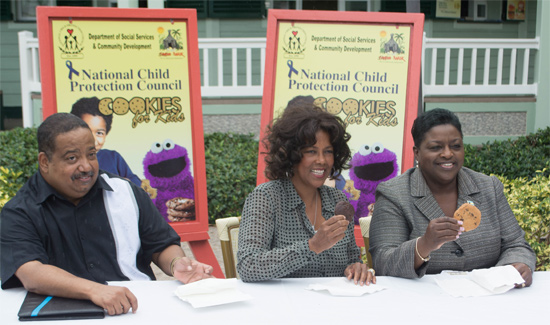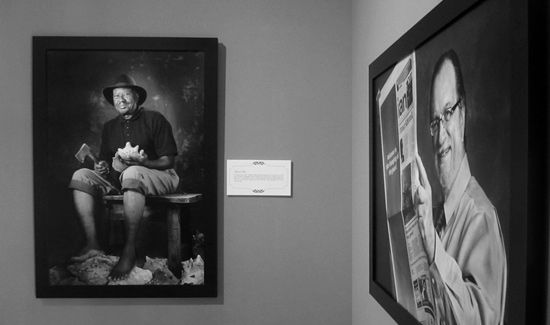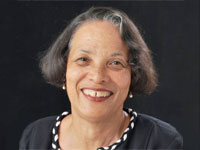
NASSAU, The Bahamas — Poor and inadequate housing, unsanitary conditions, overcrowding, unemployment, truancy, environmental and social decay, crime, and the lack of positive activities for the young and old, have led to many of the problems facing The Bahamas today, Minister of National Security Dr. Bernard J. Nottage said.
Dr. Nottage said the Government of The Bahamas’ decision to address all of these issues by taking its services to the heart of desolate, crime-infested areas and transform them into communities where pride is being restored and the value of respect for human dignity is being soundly acknowledged through the Urban Renewal Programme, should be commended, rather than maligned.
Project Officers have been established in 10 Urban Renewal Centres in New Providence and six in Grand Bahama since the re-introduction of the Programme in June, 2012. The areas in New Providence include Farm Road, Bain Town, Fort Charlotte, St/ Cecilia’s, Pinewood, Grants Town, Englerston, Kemp Road/Okra Hill, Nassau Village and Fox Hill.
The six in Grand Bahama are: West End, Marco City, Pineridge, Eight Mile Rock, Lucaya and High Rock.
The National Security Minister said he was “very pleased” with the progress that has been made by the Royal Bahamas Police Force and other governmental agencies/ministries and/or corporations, since the launch of the Urban Renewal Programme 2.0 in June, 2012.
“The Urban Renewal Programme has significantly impacted the manner in which the Royal Bahamas Police Force and by extension, other government agencies “police” the community by consent,” Dr. Nottage said.
Addressing the Official Launch of the Urban Renewal Programme 2.0 and the Urban Renewal Commission – the body that will have oversight of the Programme – Dr. Nottage said the relationship between the Police (in this instance the Royal Bahamas Police Force) and the community at-large “cannot be emphasised enough.”
“”I acknowledge that the importance of a good relationship between the Police and the community cannot be emphasised enough as it is a well established that the police alone cannot solve crime,” Dr. Nottage said.
“The Community too has a very important role to play. It is therefore essential that the police maintain the closest possible relations with the community (which is what Urban Renewal allows for),” Dr. Nottage added.
Dr. Nottage said The Bahamas’ Urban Renewal Programme is built on the premise that both the Police and the community must work together to identify, prioritise, and solve contemporary problems such as crime, drugs, the fear of crime, social and physical disorder and overall neighbourhood decay, with the goal of improving the overall quality of life in the area.”
He said that since the re-introduction of the Programme in June, members of the Royal Bahamas Police Force assigned to the Urban Renewal Centres, have joined forces with officials of the Ministries of Social Services and Community Development, Health, Education, Housing and Youth, Sports and Culture, in an effort to “identify and provide immediate relief to many of the problems faced by residents.”
“These problems include, but are not limited to, poor and inadequate housing; lack of bathroom facilities, unsanitary conditions, overcrowding, unemployment, lack of positive activities for the young and old, truancy, environmental and social decay and crime,” Dr. Nottage said.
“In Urban Renewal, we have brought social services to the young, old, infirm and physically challenged. We have intensified our efforts to rid the community of criminal elements by taking away their comfort zone as we hold fast to the philosophy that we can either prevent it now, or combat it later.
“I am convinced that as we revitalise this programme, more dividends will be reaped,” Dr. Nottage added.
By Matt Maura
Bahamas Information Services



